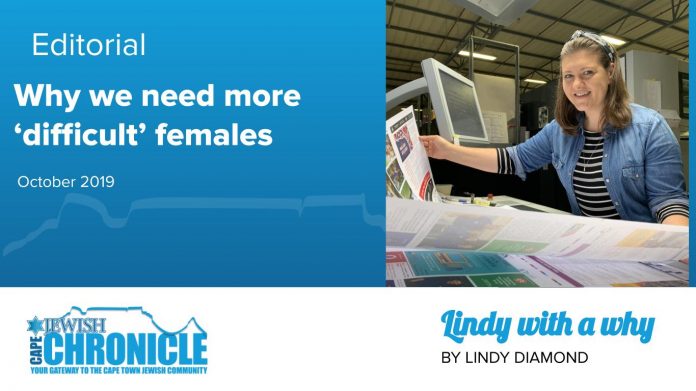Boy, my girls can be difficult.
I have often said to them (read: shouted at them) when my blood pressure is near boiling point and my coffee has worn off, “why can’t we just run on the novel assumption that in this house, I am the boss, and when I say things you do them first time around?!” Repeating myself and being ignored can be such triggers for me. Noncompliant, disobedient children? Oy. Little girls being sullen and pouty? Double oy.
And yet, what is my job here? Sure, I am aiming for ‘respecting your parents’. That’s a value we hold dear. But the best way to learn to respect your parents is not through parents shouting that they deserve respect.
By showing your children how much you respect your parents, their grandparents, you not only teach them that that respecting parents is important, but you model how to do it at the same time. Being an example is much harder, but more effective.
My job here, besides the feeding, hugging, reading to, laughing with and learning from, is to carve independent resilient women who aren’t afraid to say how they feel. We aim to operate within the model of ‘is it true, is it necessary, is it kind?’ when expressing ourselves, but if our self feels uncomfortable, that must be expressed too.
Many women can say that while they haven’t been assaulted they have been put into very uncomfortable situations where they pretended they weren’t uncomfortable because they ‘didn’t want to make a scene’ or they ‘didn’t want to hurt feelings’. I want my children to be non-compliant. (This will come back to haunt me in the short-run, but I’ll sleep way better in the long-run)
I want them to know that it’s OK not to smile and be pleasant when they don’t feel that way. They don’t owe the world a smile or a hug. I need them to know that if someone makes them feel uncomfortable, they can acknowledge that feeling and decide on an immediate course of action and that I will back them 100%.Trusting their guts will serve them better in the long run than aiming not to offend.
An important lesson can be learned from the words of author and strong woman Chimamanda Ngozi Adichie, “What I want to say to the young girls is forget about likeability — if you start off thinking about being likeable you’re not going to tell your story honestly because you’re going to be so concerned with not offending. The world is such a wonderful, diverse, multi-faceted place that there’s somebody that’s going to like you — you don’t need to twist yourself into shapes.”
Girls and women who feel like they ‘owe’ something to the person they are interacting with often minimise their own discomfort so that they don’t offend, squash their opinion so that they don’t aggravate and ‘twist themselves into shapes’, because that’s what good girls do.
My young girls have been born into a time of extraordinary challenge and extraordinary opportunity. They will need to be extraordinary, not compliant, to navigate through this complex world. And when they do choose to smile or hug or do something for someone, I will know they are doing it because they really want to do it and not because they are doing as they were told.
We may feel overwhelmed with all the hashtags and movements, protests and horrific news reports, but actually this is a time of great potential. Through all this discomfort and discourse we can be a part of a shift that will make this a safer world for all our children, girls and boys.
To download a PDF of the Chronicle for October, click here
To read the most read story online in September, click here











